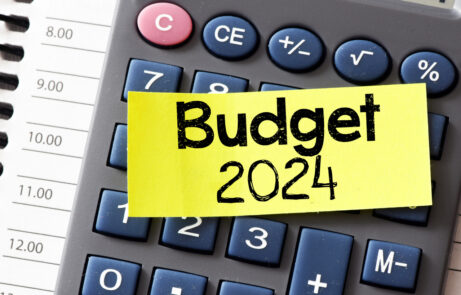Congratulations – you’re officially a dentist! Years of hard work and training have paid off, and you’re ready to start practicing. That means you’re also stepping straight into financial independence, and with it, a host of important decisions about debt, taxes, and long-term planning.
Whether you’re joining a practice as an associate, working for yourself, or preparing to buy a clinic, your early career choices will shape your financial future. Here’s what to consider as you begin your journey.
Managing Student Debt
Most dental grads in Canada leave school carrying significant student debt. And with loan balances often reaching into six figures, repayment can be a significant goal for many grads.
A common question is whether to pay off that debt as quickly as possible or spread it out over time. The answer depends on your interest rates, income, and cash flow. Some grads want to be debt-free before taking on new obligations, while others, especially those looking to buy into a practice, may need to manage multiple forms of debt simultaneously.
If you’re earning income right away, don’t overlook the potential value of contributing to an RRSP. Even small contributions can help reduce your tax bill while starting to build long-term savings. An RRSP contribution made in a high-income year can yield a valuable tax deduction and help you strike a balance between debt repayment and financial growth. The RRSP can also be a great tool for a future home purchase in addition to the TFSA and FHSA accounts (new initiative from 2023). It’s important to keep these accounts and contributions in mind if the goal is to buy a house in a few years while paying off student debt.
Employment vs. Self-Employment
As a new dentist, you might join a practice as either an employee or an independent contractor. Both options can look similar on the surface, but they come with very different tax and financial planning implications.
Employee Associate
If you’re hired as an employee, your employer will deduct income tax, Canada Pension Plan (CPP) contributions and Employment Insurance (EI) premiums from each paycheque. While this offers convenience and simplicity come tax time, it also limits your ability to claim deductions for professional expenses against this income and can limit tax planning strategies for future financial growth.
Self-Employed Associate
If you’re working as a self-employed contractor, you’re responsible for tracking your income and paying your taxes and CPP contributions. But the trade-off is flexibility as you can deduct a broad range of business-related expenses, including supplies, some mileage (learn more about car expenses here), and equipment. Thus offering more flexibility on the personal taxes owed.
The downside is there is no personal income tax withheld from the income as it is earned. This leads to the tax being paid when the personal taxes are filed and requires cash flow planning to ensure the tax is paid on time in your first year of practice. In subsequent years, personal tax installments will be required to spread out personal taxes over the course of the year.
The key is early planning. Self-employed dentists should work with a tax advisor to avoid surprises at tax time, and to take full advantage of available deductions.
Incorporation: When and Why
For self-employed dentists, incorporation can offer valuable tax deferral opportunities. But it’s not the right move for everyone.
In general, the conversation around incorporation begins when your personal taxable income exceeds $250,000 to $300,000. At that point, if only a portion of your income is needed for cost of living expenses, the unused portion can be left in a corporation, which has a lower tax rate. This results in the tax deferral opportunity a corporation can provide.
Other times where it might make sense to incorporate is if you are building a clinic from the ground up or if you are buying a practice. Having a corporation in these scenarios could be useful as lower corporate tax rates will allow for more operating cash flows for loan repayment, and more capital to be reinvested in the practice for equipment purchases and future growth. Incorporating can also help with protection of personal assets from business loans and potential business risks although a corporation does not limit liability for professional malpractice.
Other benefits of incorporation can include:
- Long-term retirement planning
- Potential for income splitting with a spouse after the practitioner turns 65 years
- Separation of personal and business assets for asset protection
Keep in mind, if you need to draw all your earnings to cover living expenses or repay personal debt, incorporation may not offer much benefit. Each situation is unique so it is important to speak with an accountant who understands professional corporations and your personal goals.
Should you incorporate your professional practice? Follow the link to learn more.
Should You Buy Into a Practice Early?
Some new grads are eager to jump into ownership, while others prefer to build experience first. There’s no single right answer but buying or starting a practice early in your career comes with both risks and rewards.
Practice ownership often means taking on more than $1 million in additional debt, alongside new responsibilities like managing staff, handling payroll, and overseeing operations. The potential payoff can be significant, but so is the learning curve.
Before moving forward, ask yourself:
- Are you ready to run a business?
- Do you know the area you’re planning to serve?
- Have you done your financial due diligence?
An independent valuation of the practice is essential, as is a thorough review of financials from the past two to three years. And while the banks are often open to financing dental purchases, rising valuations and borrowing costs can be barriers, especially early in your career.
If you’re not ready to buy right away, consider working as an associate in a practice that may offer a path to future ownership. That gives you time to assess the environment, build relationships, and plan your next move with confidence.
Financial Planning for Long-Term Success
No matter how you’re starting out, setting up strong financial systems early will pay off over time.
- Bookkeeping: Even if you’re just getting started, tracking your expenses and organizing your records now will save time and stress later.
- Professional advice: An accountant who understands dental practices can help you avoid costly mistakes and make informed decisions about incorporation, deductions, and tax planning.
- Insurance: Consider disability, liability, and overhead insurance. Your future earning potential is a key asset – protect it accordingly.
Final Thoughts
As a new dentist, your clinical training may be complete, but your financial education is just beginning. The decisions you make now will shape your career and your future security. Whether you’re repaying debt, buying into a practice, or exploring incorporation, don’t go it alone. With the right guidance, you can build a financially healthy career starting today.







